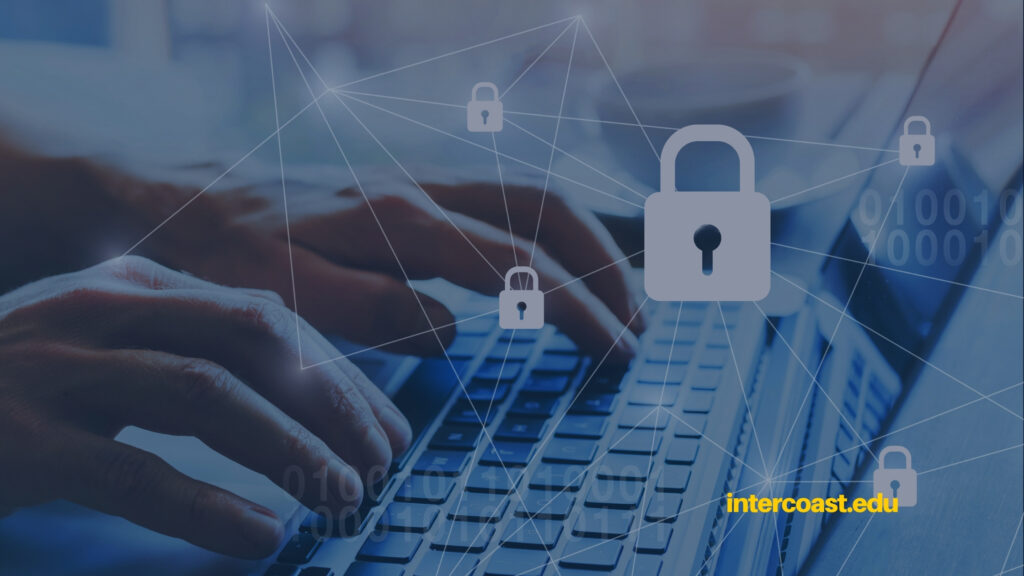You may not have heard that the U.S. Bureau of Labor Statistics anticipates a 33% increase in information security analyst jobs between the years 2020-2030.
In this position, you are responsible for planning and conducting security procedures that protect a company’s computer systems and network. Because this job is essential for protecting the confidential material shared within an organization, persons in this role are compensated quite well, averaging $103,000 per year (according to BLS as of 2020).
But how does someone secure a career like this? For those interested in a career in cybersecurity, you’ll need to get a degree. Keep reading to learn everything you need to know about how to get a cybersecurity degree.
Enrolling in a Degree Program
The first step one takes to study cybersecurity is enrolling in a degree program. There are many programs across the U.S., all at varying costs and lengths.
Each school will likely have similar enrollment requirements. Most schools want to make sure you have a basic understanding of computers and how to use them. They also can require placement tests to determine your mathematical and technical knowledge.
It’s up to you to decide how long you’d like to spend studying your field. Most graduates in the field hold either an associate’s or bachelor’s degree, but it isn’t uncommon for those seeking a high-level position to pursue a master’s.
When choosing where to get your degree, be sure to gather as much info about the institution, including their program length, start date, enrollment requirements, and reputation. Also, consider the classroom-style you’ll be in. Some programs teach exclusively online or in the classroom, while others combine the two for a hybrid learning experience.
Additionally, find an institution that offers financial aid. Many universities, secondary schools, and colleges provide resources for tuition assistance. Check out the official Federal Student Aid website for more information about applying for financial aid.
Completing the Program
After enrolling, all that’s left to do is complete the program to get your degree.
Depending on where you’ve enrolled, you’ll be required to complete various theoretical and practical courses. These courses are designed to provide you with all of the knowledge you’ll need to find success in the field.
Most degree programs will cover the basics of cybersecurity and computer networking through lectures, labs, projects, and exams. In addition to courses directly related to your major, you’ll also complete general education courses recommended by the institution.
For example, our 75-week degree program at InterCoast enables students to gain the theoretical knowledge necessary to work in the field and apply concepts to further their career objectives. Our courses combine theoretical ideologies with practical application through labs and other hands-on exercises. They are designed to emphasize the importance of cybersecurity, performing risk analysis, ethical hacking, and other specialized subjects.
Degree Requirements
Graduates in the field are required to possess specific skills of cybersecurity; these include:
● Risk Assessment and Management
● Information Systems
● Digital Forensics
● Coding Languages
● Authentication
● Linux
Risk assessment management is a crucial skill for security analysts and other positions in cybersecurity. It involves balancing the projected risks to the organization with the actions required to protect it.
Information systems refer to how information is collected, processed, and distributed. Professionals must know the routes data performs and operates on to identify breaches and develop new security measures.
Digital forensics encompasses the investigative actions taken to identify abnormalities and malicious network activity. Without an understanding of information systems, tasks involving digital forensics are virtually impossible, which is why it’s essential the program you’re enrolled in covers both.
Your program should also cover basic computer programming languages and how to code in them. Coding allows you to develop and improve programs that will increase network security.
Cybersecurity professionals often use code to create and review authentication programs. Authentication is the process of validating a user’s identity to grant them access to online resources. In addition to being familiar with these programs, professionals must also be comfortable working with firewalls and Intrusion Detection Systems.
After completing all required courses, labs, and exams, graduates then receive their degrees.
Cyber Security Certification Options
Another way to enter into the field of cybersecurity is through a certificate program.
Cybersecurity certificate programs are typically shorter than a degree program and focus on a specific specialization. Because these programs are often completed in one year or less, they are highly desirable among people looking to enter the field.
These programs can specialize in a variety of areas, so it’s best to research your options. The most popular certifications employers are looking for include Certified Information Systems Security Professional (CISSP), Security+, Certified Ethical Hacker (CEH), and many others.
Certificate programs are a great way to prepare you for entry-level employment, so long as you pass the certification examination in the area, you’re pursuing. Depending on your career goals, you may need to complete additional certifications, as they tend to build on one another. The school you enroll in should provide you with everything you need to prepare for the exams.
Similar to degree programs, most cybersecurity certificate programs require you to have a basic understanding of computers and how to use them. Others can require work experience or a degree to account for it.
If you have no experience in cybersecurity and are looking for an entry-level certification program, consider one of these:
● GIAC Certified Incident Handler (GCIH)
● GIAC Security Essentials Certification (GSEC)
● Network+
● Security+
These are a few certifications that are highly desired by employers. Completing one of these is a significant step to take towards your success in cybersecurity.
Getting Your Cybersecurity Degree
By becoming a cybersecurity expert, you can unlock a world full of new opportunities. To find a job in cybersecurity, you’ll need a degree. Now that you know how to get one, all that’s left is taking the first step.
For more information about our available cybersecurity degree program and how to enroll, contact us today! We’re happy to help.


